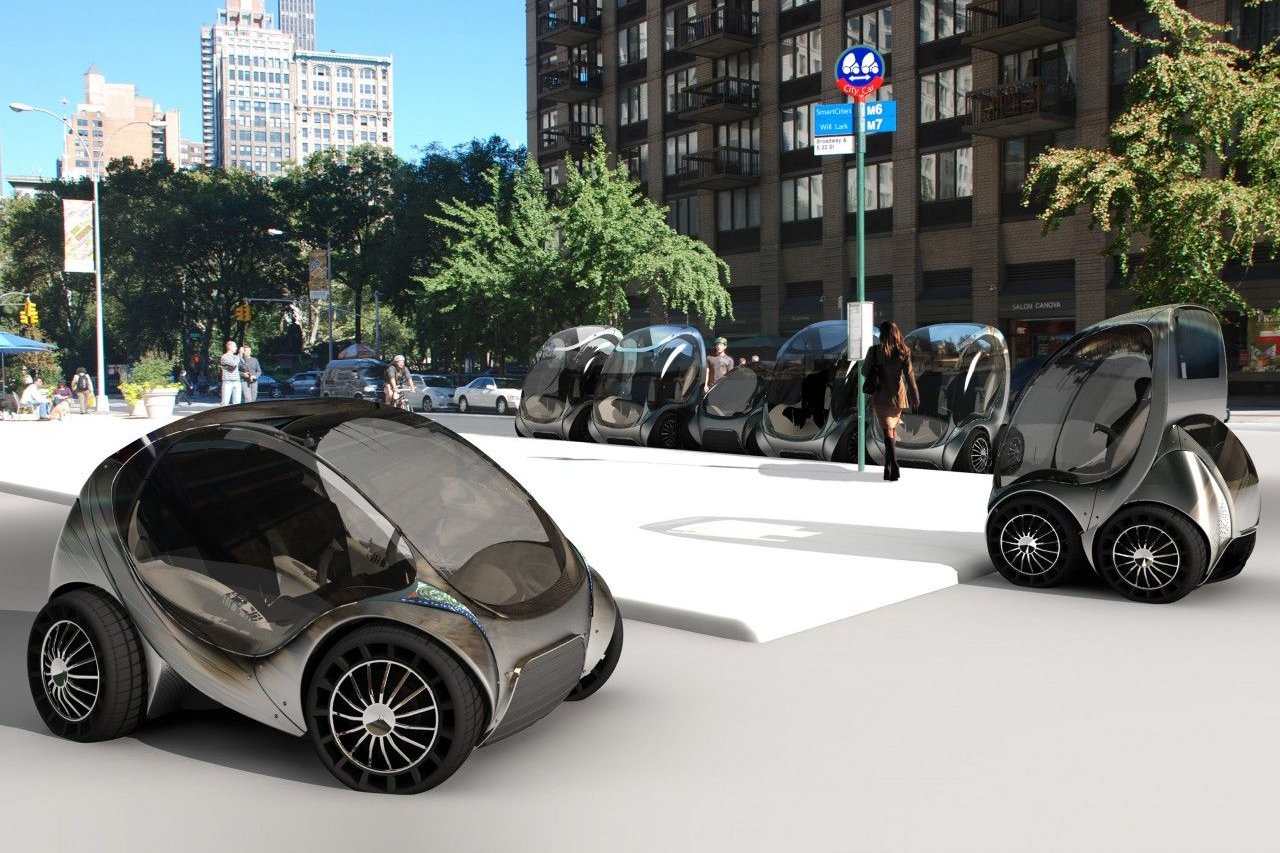Traffic congestion, limited space and air pollution are a few of the many plagues of urban life. But what if a network of svelte electric cars were waiting at hubs in your city, charging up their batteries until their next drivers come along? You swipe a card to borrow a vehicle, drive to your destination and drop the car off at the closest station, where it will wait for its next user—a cross between short-term car rental services like ZipCar and the luggage trolleys at the airport or Citi Bikes in New York. That's the vision for CityCar 2.0, a project led by Kent Larson at MIT's Media Lab.
With the ability to fold and stack against each other, three and a half of these new CityCars can fit into the space of one conventional car. Up to two passengers can enter through the windshield, which swings up. "One shared-use vehicle can serve something like 10 times the number of people than privately owned vehicles," says Larson. "Most private cars sit unused for most of the day." And with the ability to run over 100 kilometers on a battery charge, the electric vehicle could reduce air pollution caused by carbon emissions.
Traffic congestion in the U.S. increased by 6 percent last year, mostly in the biggest metro areas, and the United Nations estimates that city populations will increase in the coming decades. "Cities in the U.S. dedicate an excessive amount of space to accommodate the automobile," says UCLA urban planning professor Anastasia Loukaitou-Sideris. "Much smaller vehicles like the CityCar would require much less space for their circulation and parking. In the long run, the effect may be more space for sidewalks, street trees, bike lanes and a more pedestrian and bicycle-friendly city."
It will take time and some serious lobbying to get these urban-centric car sharing systems adopted in the U.S., but Larson believes that if Europe and East Asia get onboard, the States will follow. He's more than halfway there: In 2012, a commercial implementation of MIT's first version of CityCar was introduced in Spain as Hiriko. And Larson anticipates signing an agreement to roll out CityCar 2.0 in China this year.























